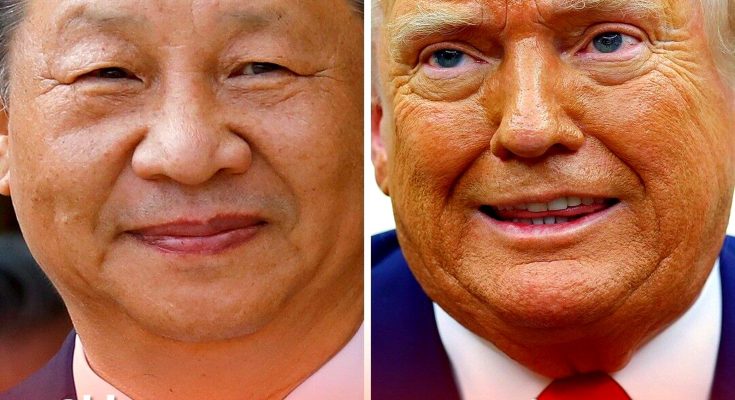In a dramatic escalation of the trade war between the United States and China, Beijing has announced new, extreme retaliatory tariffs on American goods. This move comes after the U.S. imposed a 104% tariff on Chinese imports, a decision that has ignited tensions between the two economic giants and sent shockwaves through global markets.
The Chinese government has responded by increasing tariffs on U.S. goods to as high as 84%, targeting a wide range of products including agricultural goods, electronics, and machinery. Additionally, China has blacklisted key American companies, including several technology firms and defense contractors, marking a sharp increase in the hostilities of the trade dispute.
This decision to levy new tariffs is seen as a direct response to the Trump administration’s aggressive tax policies. President Trump’s tariffs, originally aimed at addressing trade imbalances and intellectual property theft, have had wide-ranging effects on global trade, and China’s countermeasures further complicate the economic relationship between the two nations.
The new tariffs have already begun to cause significant market volatility. While stock markets in Europe and Asia plummeted in reaction to the announcement, Chinese markets saw a temporary rebound due to government interventions aimed at stabilizing their economy.
Experts warn that the escalation of the trade war could lead to higher costs for consumers worldwide and further disrupt global supply chains. The longer the trade conflict persists, the greater the risk of inflation and slower economic growth across many industries. The effects are already being felt by manufacturers, who face higher costs for imported raw materials and goods.
U.S. Treasury Secretary Scott Bessent has suggested that the United States may look to negotiate with its allies, and possibly China, to reach a comprehensive deal that addresses some of the underlying trade issues. However, President Trump has doubled down on his stance, defending the tariffs as necessary for national security and economic growth. Trump has also urged U.S. companies to relocate operations back to the U.S. to avoid the tariffs, emphasizing that the country offers benefits such as zero tariffs and streamlined business approvals.
As the situation continues to evolve, both governments are under increasing pressure to find a resolution. Economists warn that the ongoing trade dispute, if unresolved, could have long-lasting effects on global economic stability. The world is closely watching the next steps in this high-stakes game of economic brinkmanship, as the U.S. and China continue to maneuver for dominance in the global marketplace.


